
Lot 82

Ascham, Roger
The Scholemaster Or plaine and perfite way of teaching children
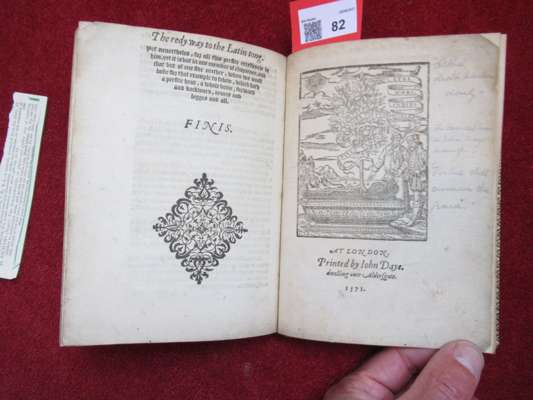
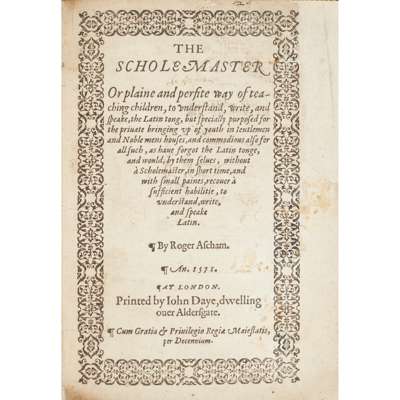
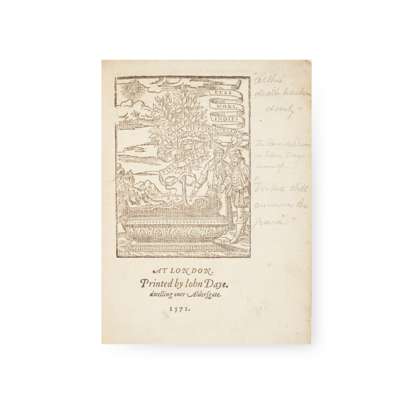
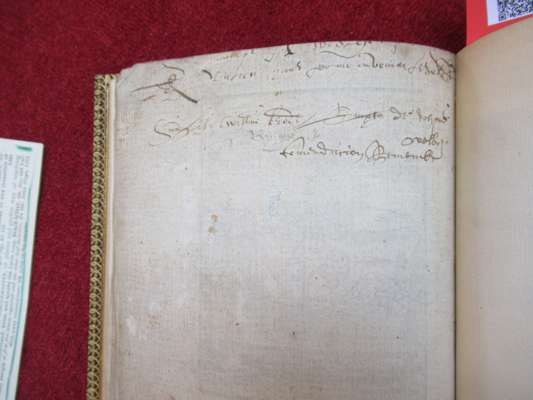
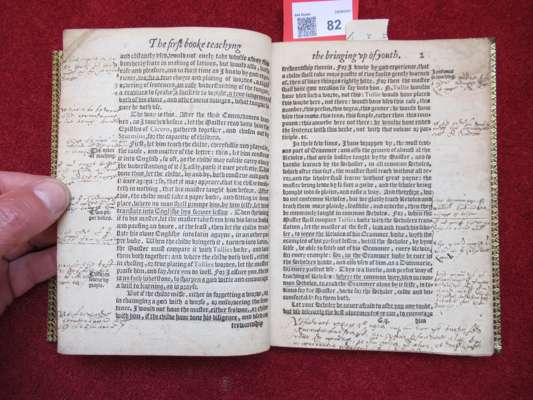
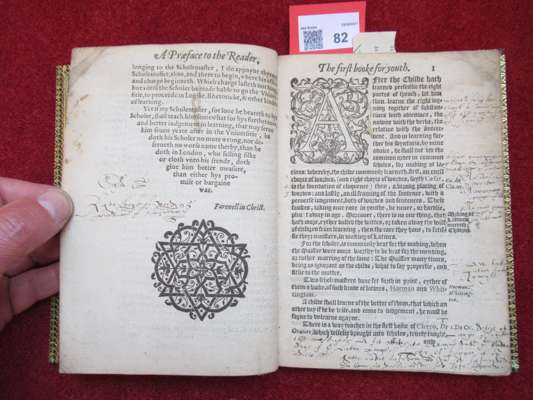
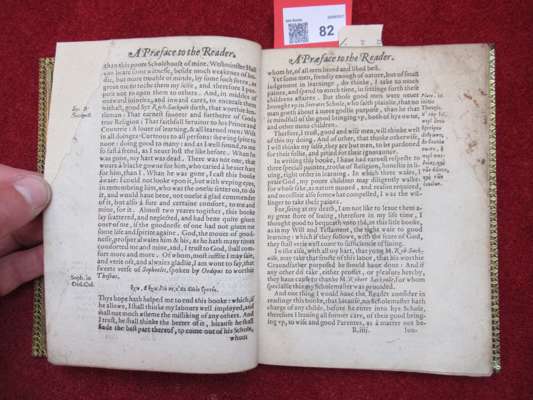
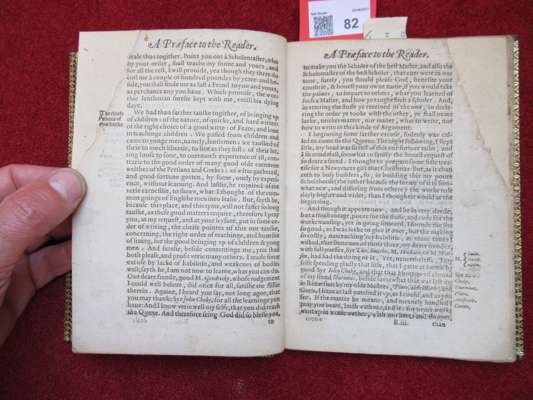
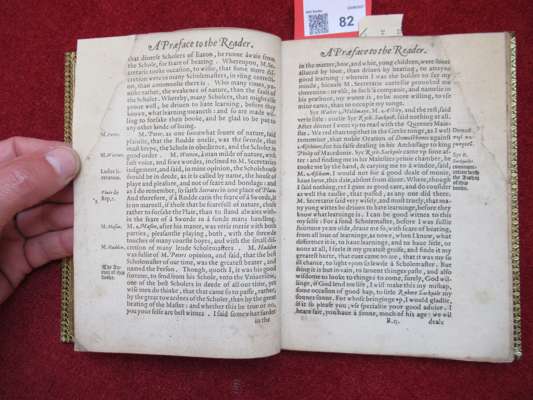
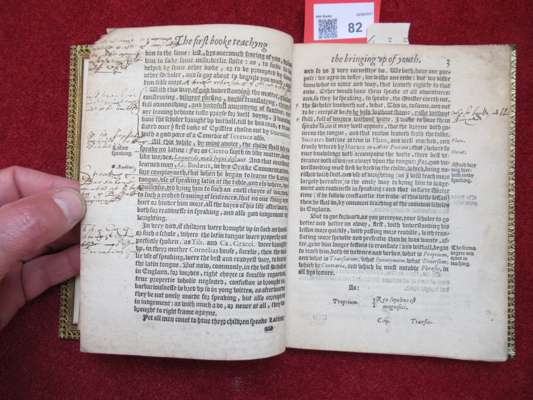
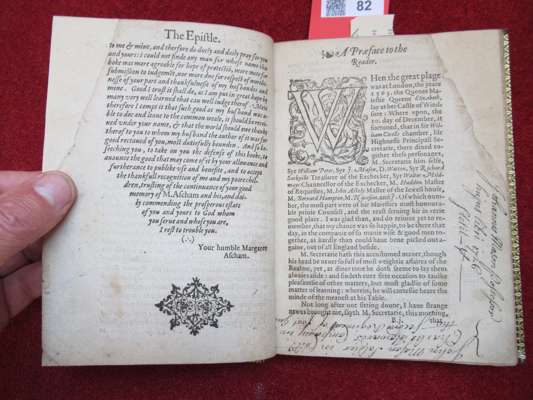
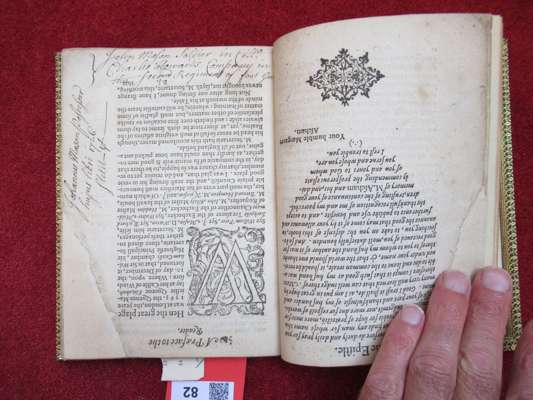
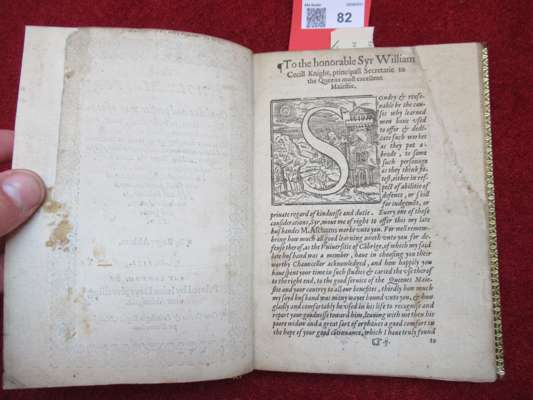
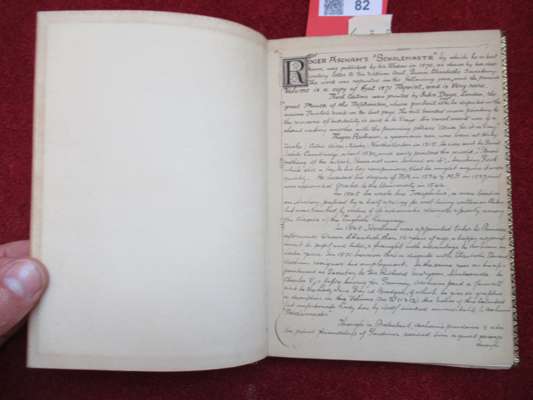
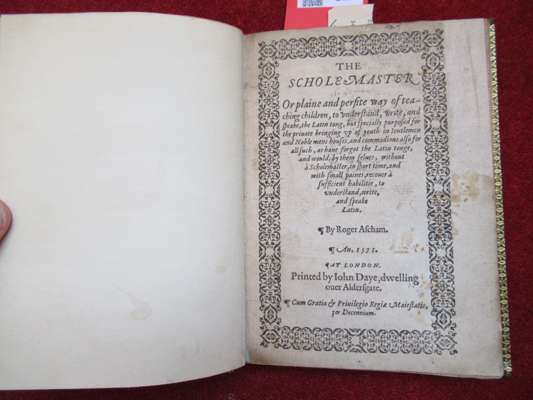
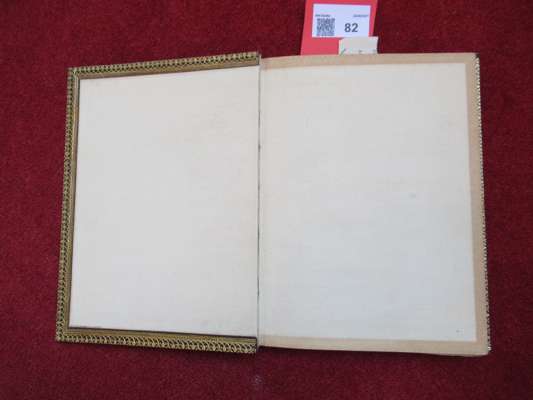
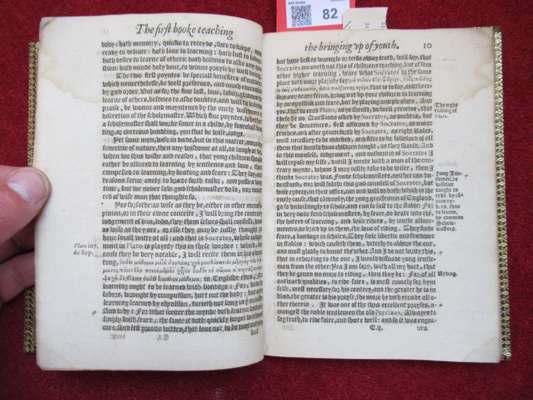
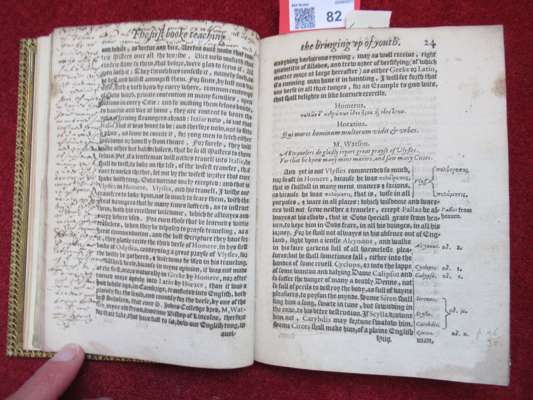
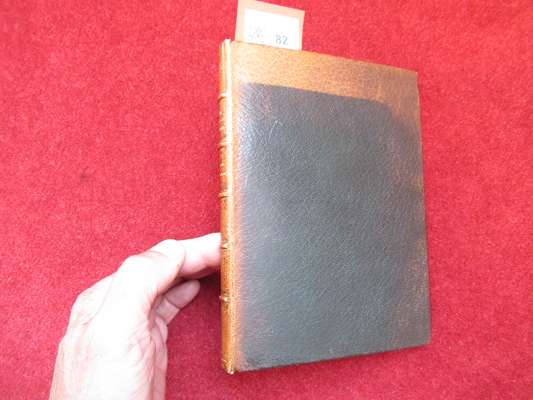


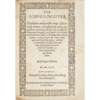
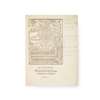

















Rare Books, Manuscripts, Maps & Photographs
Auction: 23 June 2021 at 11:00 BST
Description
to understand, write and speake the Latin tong, but specially purposed for the private bringing up of youth in Gentlemen and Noble mens houses. London: Printed by John Daye, 1571. Second edition, 4to (185 x 132mm), [A1-2], B-T4, title within typographic border, large woodcut initial to [A2], large woodcut to recto of final leaf, Leaf 67 misnumbered 65, nineteenth century dark green morocco by Henderson & Bisset, spine lettered in gilt, g.e., some early marginalia, 4pp. of neat scholarly notes by William Graham to 2 extra leaves bound in at beginning, upper fore-margin of title renewed, fore-margin of 4 leaves [A2, B1-3] restored with 7 letters supplied in very neat pen facsimile by William Graham, corner of O2 renewed with a few letters supplied in very neat pen facsimile, ink ownership inscriptions to B1 margin (see Provenance), binding spine faded, [ESTC S100261], a little dampstaining
Footnote
Note: Probably the most important Tudor work on education, a major influence on the development of classical humanism in Renaissance England. Ascham served as tutor to Princess (and Queen) Elizabeth. The Scholemaster, supposedly written as the result of a dinner debate with Sir William Cecil on the subject of flogging children, propounds humane teaching methods. The work remained unpublished at his death, and the impetus for its appearance came from his widow, Margaret.
Provenance: John Mason: "Johannes Mason Posessor/hujus libri 1726/ stetit [?]"; "John Mason Soldier in Colls. Charles Howards Company in the Second Regiment of foot Guards", in margins of B1; William Graham, JP, FRSAS (1855-1922), Banker, Author of "The One Pound Note", Antiquary & Book Collector; Family books relating to the Andersons and Grahams of Edinburgh.
Like his father before him, and like his step-brother Christopher who vigorously supported Gaelic Schools, Robert Anderson (1768-1850) was devoted to the education of women and determined that his daughters should be educated as well as his sons. Similarly Roger Ascham served Queen Elizabeth, and on his death it is recorded that Elizabeth said she "would rather have cast £10,000 into the sea than lose her Ascham". Inspired by this and by Joseph Lancaster, Robert Anderson's daughter Euphemia Cargill Anderson, Sr. (1801-1856) and her elder brother Robert, Jr. (1799-1868), a mathematics teacher, opened the Gayfield Square School for Young Ladies in Edinburgh in 1834.







































